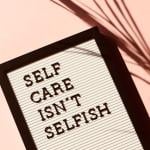The only way I can get through the tedium of working out on an aerobic machine is to read—yesterday, I read the opening pages of Anne Lamott’s newest book, Almost Everything: Notes on Hope. I love Anne Lamott’s work—her honesty, fearlessness, humor, and insight always resonate deeply. The best comment anyone ever made about my writing was that it reminded him of Anne Lamott’ work. From his mouth to God’s ears.
Hope is a scarce and costly commodity these days, so this was a particularly relevant book to be reading at 6:30 in the morning in the midst of the impeachment trial of Donald John Trump. Early in Almost Everything, Lamott describes what an older woman in the midst of a twelve-step recovery program once told her. One of the steps involved a lengthy and elaborate prayer about turning your life and expectations over to God, whatever or whomever you understand God to be. The woman revealed that instead of this elaborate prayer, she and some of the other older folks simply pray “Whatever” upon waking, and “Oh, well” before going to sleep.

“Whatever” and “Oh, well” are excellent prayers right now, no matter where in the sharply polarized political landscape one finds oneself. My own non-scientific survey of friends and colleagues over the past few days, a collection of academics and acquaintances who largely share my own liberal and left-leaning commitments on just about everything, reveals that no one feels any better than they did before the impeachment trial began, even though the House managers’ case was carefully constructed and effectively presented. People are already worried and concerned about both the apparently foregone conclusion of the trial, as well as about the upcoming Presidential election, and are worn out from worry and concern. The general attitude reminds me of something I read last summer.
In Autumn, acclaimed Scottish author Ali Smith’s 2016 post-Brexit novel, a mother expresses to her daughter the weariness and malaise that many people currently feel.
I’m tired of the news. I’m tired of the way it makes things spectacular that aren’t, and deals so simplistically with what’s truly appalling. I’m tired of the vitriol. I’m tired of the anger. I’m tired of the meanness. I’m tired of the selfishness. I’m tired of how we’re doing nothing to stop it. I’m tired of how we’re encouraging it. I’m tired of the violence there is and I’m tired of the violence that’s on its way, that’s coming, that hasn’t happened yet.
Persons on all sides of the political spectrum share this general fatigue. Whether pro-Trump or anti-Trump, whether one voted for or against Brexit, optimism and hope are becoming more and more difficult to sustain.
I’m tired of liars. I’m tired of sanctified liars. I’m tired of how those liars have let this happen. I’m tired of having to wonder whether they did it out of stupidity or did it on purpose. I’m tired of lying governments. I’m tired of people not caring whether they’re being lied to any more. I’m tired of being made to feel this fearful. I’m tired of animosity.
If hope is not available, perhaps “Whatever” and “Oh, well” are the best we can do.
At the beginning of Almost Everything, Anne Lamott quotes a few lines from T. S. Eliot’s “Ash Wednesday,” lines that we would all do well to ponder:
Teach us to care and not to care / Teach us to sit still.
Yes, we should care about what’s happening, and yes, we should learn to step back and take a deep breath. Yes, we should continually find ways to be engaged in our communities, and yes, we must occasionally give ourselves permission to do nothing. A paradox for sure, but reality is paradoxical. And so is hope, as Lamott describes:
Love and goodness and the world’s beauty and humanity are the reasons we have hope. Yet no matter how much we recycle, believe in our Priuses, and abide by our local laws, we see that our beauty is being destroyed, crushed, by greed and cruel stupidity. And we also see love and tender hearts carry the day. Fear, against all odds, leads to community, to bravery and right action, and these give us hope.
The ebb and flow of human existence is inexorable, suggesting that there might be better strategies for coping than immediately getting our collective hair on fire over the daily events, great and small, that threaten to snuff out even our most basic hopes and dreams.
The challenge of learning both to care and not to care should be familiar to persons of faith—this dynamic is woven throughout sacred texts. Jesus says to stop worrying about tomorrow, not because it will all work out for the best, but because “today has sufficient worries of its own.” We are advised to consider the lilies who are more beautifully clothed than Solomon in all his splendor, the very lilies whose beauty is fragile and temporary. We are assured that God is aware when even a lowly sparrow falls from its nest, yet we are not assured that God is doing anything to keep the sparrow from falling in the first place. “Whatever” and “Oh, well” can sometimes take on a sacred meaning.
On those days when hope seems most distant, when the promise of things getting better sounds empty, I often turn to a beautiful passage from the middle of Lamentations, perhaps the darkest text in the Hebrew scriptures:
I will call this to mind, as my reason to hope:
The favors of the Lord are not exhausted, his mercies are not spent;
They are renewed each morning, so great is his faithfulness.
My portion is the Lord, therefore will I hope in him.
Good is the Lord to one who waits for him, to the soul that seeks him;
It is good to hope in silence for the saving help of the Lord.
“I will call this to mind as my reason to hope” . . . and sometimes, it helps.

















